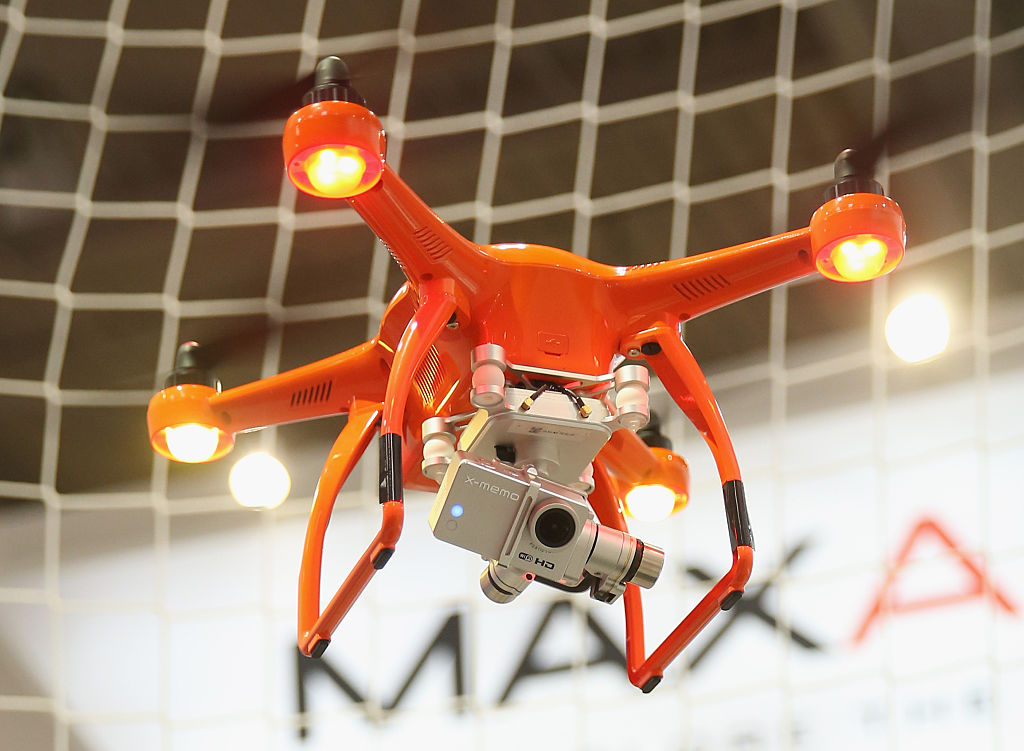ADF STAFF
When a terrorist group launches an attack these days, it is likely that one or more airborne drones are recording the action for use later in social media.
Across Africa, violent extremist organizations (VEOs) are quickly adopting digital technologies designed to expand their arsenals beyond bullets and bombs to include cyberattacks against key infrastructure and propaganda to recruit new members.
The rapid evolution of artificial intelligence could further help VEOs exploit those technologies in a way that makes it difficult for governments and security agencies to keep up, according to Geoffrey Jackson, a professor of military history and international relations at Canada’s Mount Royal University.
“Innovation among non-state actors is always going to be faster than the state,” Jackson told a gathering of African military leaders at the African Land Forces Summit in Côte d’Ivoire in May. “The government is always on the back foot — it’s always responding to these issues, and it needs to respond in sophisticated ways.”
Jackson urged governments across Africa to dedicate people and resources to overcoming terrorists’ technological advances. That’s especially needed where cyberattacks against key infrastructure are concerned, he said.
“This is the biggest threat and the biggest growing concern,” he added.
Even as social media channels such as Facebook and Twitter try to block VEOs from their sites, the groups find ways to get their message out, Jackson said. That often includes working through “beacon sites” that aggregate links to information and websites the groups are promoting.
Through social media, VEOs can access open-source data such as satellite imagery and closed-circuit television channels that they can use to surveil sites and choose both targets for attack. They also target specific social media audiences with the goal of radicalizing viewers and drawing more members to their cause.
“This is something that VEOs are using very successfully and sophisticatedly now in Africa,” Jackson said.
Unmanned aerial vehicles (UAVs) — commonly referred to as drones — have proliferated across Africa in recent years with terrorists and security forces using them for surveillance and intelligence gathering. VEOs often use commercially available drones designed for civilians , making it difficult to restrict access to the technology.
Some VEOs have taken to flying drones over communities they seek to control as a kind of “eye in the sky” threat, Jackson said. Drones flying over the battlefield also play a crucial role in developing the propaganda that terrorists then distribute online to recruit new members.
As VEOs expand their technological sophistication, cybersecurity is becoming an increasingly important part of countering their operations.
Cyberattacks against key infrastructure components, such as electric grids and public water systems, are designed to undercut faith in government. Although the problem is in its infancy at the moment, the introduction of artificial intelligence and hired hackers from foreign countries will further challenge governments to keep up, Jackson said.
Ultimately, African governments face continually escalating technological threats from VEOs, who have few barriers to adopting new methods of attack. The answer, in part, is for countries to dedicate legislation, personnel and financial resources to confronting such attacks, he added.
So far, 29 African countries have passed cybersecurity laws designed to punish cyberattacks. Coordinating cybersecurity laws across borders can help countries prevent the spread of cybercrime, Jackson said.
“If there are similar laws, similar security infrastructure, similar firewalls all built up in surrounding states, it will help everyone with mutual protection,” he added.

